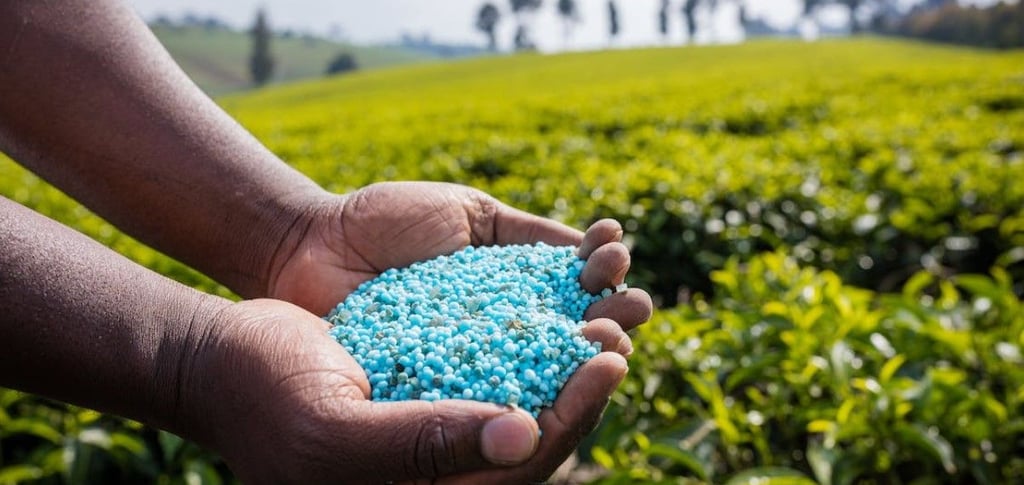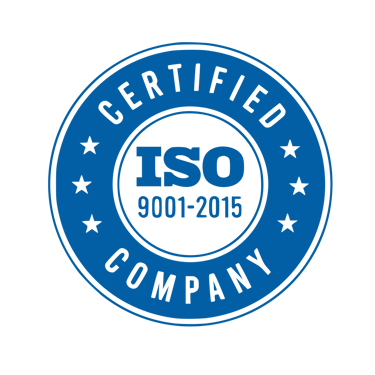How To Start A Lucrative Fertilizers Distribution Business In Kenya
The Complete Guide To Building A Profitable Agro-Input Supply Business in East Africa
HOW TO GUIDE
3 min read


Kenya’s economy is deeply rooted in agriculture. With nearly 75% of the population engaged in farming, the sector contributes over 30% to GDP and employs millions directly and indirectly.
As food security becomes a national priority and climate change impacts yields, fertilizers have emerged as one of the most essential agricultural inputs for improving productivity and ensuring sustainable farming.
This guide will walk you through the full process of starting a profitable fertilizer distribution business in Kenya — from understanding the market to sourcing, logistics, licensing, and scaling operations.
What Are Fertilizers?
Fertilizers are chemical or organic substances added to soil or crops to supply essential nutrients required for plant growth.
Common Types Used in Kenya:
DAP (Diammonium Phosphate) – Used during planting to support root development.
CAN (Calcium Ammonium Nitrate) – Top dressing fertilizer.
NPK (Nitrogen, Phosphorus, Potassium) – Balanced nutrient mix.
UREA – High nitrogen fertilizer.
Organic Fertilizers – Compost, manure, bio-fertilizers.
Fertilizer demand in Kenya is driven by crops like maize, tea, coffee, sugarcane, horticulture, and floriculture.
Market Opportunity in Kenya
Why the Demand is Growing:
Government Subsidies & Programs like e-voucher systems.
Rising Population increasing food demand.
Depleting Soil Fertility requiring regular replenishment.
Climate-Smart Agriculture Projects funded by donors.
Export-Oriented Horticulture & Floriculture
Key Demand Regions:
Rift Valley (Maize, Wheat)
Central & Eastern Kenya (Coffee, Tea, Horticulture)
Western Kenya (Sugarcane, Maize)
Why Start a Fertilizer Distribution Business in Kenya?
🌾 Year-Round Demand from Farmers
🌐 Expanding Agricultural Zones
🚀 Supportive Government Policies
💰 High Volume Sales Potential
✉️ Opportunities for Rural Penetration
With proper outreach and inventory management, fertilizer distribution can provide both impact and income.
Business Opportunities in This Sector
Wholesale Distribution to Agro-Dealers & Cooperatives
Retail Sales in Rural Towns
Supplying to NGOs and Development Projects
Mobile Sales Units for Hard-to-Reach Areas
Becoming an Exclusive Distributor for a Foreign Manufacturer
Challenges and Risks
⚠️ Counterfeit Products in the Market
⚠️ Seasonal Demand Peaks
⚠️ Limited Farmer Awareness on Proper Usage
⚠️ Price Sensitivity & Forex Fluctuations
These can be mitigated by offering education, quality assurance, and flexible pricing models.
Step-by-Step Guide to Starting the Business
1. Conduct Market Research
Identify high-demand regions and preferred fertilizer types.
Engage with SACCOs, cooperatives, and agricultural officers.
Learn seasonal cycles of planting and top dressing.
2. Register Your Business
Register with eCitizen and the Agricultural Inputs Directorate (AID) under AFA (Agriculture and Food Authority).
Obtain a KEBS certification if you wish to rebrand or import.
Acquire a business permit from the county government.
3. Identify Trusted Suppliers
Partner with local manufacturers like MEA Ltd, Yara East Africa, Toyota Tshusho, OCP Africa.
Or import from India, Morocco, or China.
Ensure compliance with KEPHIS and KEBS standards.
4. Set up Storage & Retail Points
Secure a warehouse in a strategic location (e.g., Eldoret, Nakuru, Meru).
Observe safety and moisture control protocols.
Stock according to planting seasons.
5. Build a Sales Network
Recruit field agents to visit farmer groups and cooperatives.
Partner with agro-dealers for last-mile delivery.
Attend agriculture shows and county exhibitions.
6. Logistics & Importation (if importing)
Use Mombasa Port and work with a licensed clearing agent.
Understand EAC CET classifications and duty rates.
Maintain a buffer stock to account for shipping delays.
7. Marketing Strategy
Partner with radio stations for regional campaigns.
Provide sample packs to demo performance.
Use WhatsApp groups and bulk SMS to send planting alerts and offers.
8. Offer Value-Added Services
Bundle with seeds, pesticides, or irrigation kits.
Offer credit or installment-based models during planting seasons.
Organize farmer training days and field demos.
Startup Capital & Profitability
Estimated Startup Capital:
Business registration & licenses: $500
Initial inventory: $15,000 – $40,000
Warehouse rent and setup: $2,500
Marketing & branding: $1,000
Salaries (2–3 staff): $1,200/month
Total estimated investment: $20,000 – $45,000
Profit Margins:
Fertilizer margins are typically 10%–20% per bag.
Bundled product sales and bulk orders can raise profitability.
Tips for Success
Work closely with local agri-extension officers.
Offer discounts during peak planting seasons.
Ensure a consistent stock of high-demand fertilizers (DAP, CAN).
Educate farmers on usage to boost customer loyalty.
Stay updated on government subsidy programs.
Frequently Asked Questions (FAQs)
Q1: Can I start without a warehouse?
Yes. You can start as a mobile distributor or sub-distributor using existing agro-dealer outlets.
Q2: What fertilizers are in demand in Kenya the most?
DAP, CAN, UREA, and NPK mixtures tailored to maize and horticulture.
Q3: Can I import fertilizers directly?
Yes, but you must register with AFA, get KEBS and KEPHIS approvals, and work with a licensed importer.
Q4: Is financing available?
You can access trade finance from suppliers or apply for input financing from AGRA, Equity Bank, or AECF.
Q5: When is the peak season?
March–May (long rains) and October–November (short rains).
Conclusion
The fertilizer distribution business in Kenya is a powerful opportunity for agro-entrepreneurs looking to build a scalable, impact-driven venture. As the government, NGOs, and private sector push for higher productivity and better yields, demand for fertilizers will continue to rise.
With a strong sourcing strategy, local outreach, and compliance with regulatory frameworks, your business can help fuel Kenya’s agricultural growth while earning stable profits.

